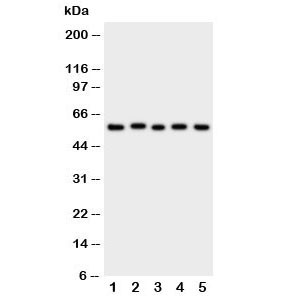Cookie preferences
This website uses cookies, which are necessary for the technical operation of the website and are always set. Other cookies, which increase the comfort when using this website, are used for direct advertising or to facilitate interaction with other websites and social networks, are only set with your consent.
Configuration
Technically required
These cookies are necessary for the basic functions of the shop.
"Allow all cookies" cookie
"Decline all cookies" cookie
CSRF token
Cookie preferences
Currency change
Customer-specific caching
FACT-Finder tracking
Individual prices
Selected shop
Session
Comfort functions
These cookies are used to make the shopping experience even more appealing, for example for the recognition of the visitor.
Note
Show the facebook fanpage in the right blod sidebar
Statistics & Tracking
Affiliate program
Conversion and usertracking via Google Tag Manager
Track device being used
| Item number | Size | Datasheet | Manual | SDS | Delivery time | Quantity | Price |
|---|---|---|---|---|---|---|---|
| NSJ-R31038 | 100 µg | - | - |
3 - 10 business days* |
755.00€
|
If you have any questions, please use our Contact Form.
You can also order by e-mail: info@biomol.com
Larger quantity required? Request bulk
You can also order by e-mail: info@biomol.com
Larger quantity required? Request bulk
0.5mg/ml if reconstituted with 0.2ml sterile DI water. Acid-Sensing Ion Channel 3, also known as... more
Product information "Anti-ASIC3"
0.5mg/ml if reconstituted with 0.2ml sterile DI water. Acid-Sensing Ion Channel 3, also known as Testis sodium channel (TNAC1) or Dorsal root acid-sensing ion channel (DRASIC), is a protein that in humans is encoded by the ASIC3 gene. ASIC3 belongs to a family of acid-sensing channel proteins that are structurally related to epithelial sodium channel proteins and support acid-activated membrane currents. By radiation hybrid analysis, de Weille et al.(1998) mapped the gene to chromosome 7q35. De Weille et al.(1998) found that the human protein supported an H(+)-gated cation current in COS cells with kinetics similar to those of the rat protein. Babinski et al. (1999) expressed homomeric human ASIC3 channels in Xenopus oocytes and found that rapid reduction in extracellular pH resulted in a biphasic response characterized by a fast and rapidly desensitizing current followed by a slow and sustained current that returned to baseline only on return to physiologic pH. Protein function: Cation channel with high affinity for sodium, which is gated by extracellular protons and inhibited by the diuretic amiloride. Generates a biphasic current with a fast inactivating and a slow sustained phase. In sensory neurons is proposed to mediate the pain induced by acidosis that occurs in ischemic, damaged or inflamed tissue. May be involved in hyperalgesia. May play a role in mechanoreception. Heteromeric channel assembly seems to modulate channel properties. [The UniProt Consortium]
| Keywords: | Anti-ASIC3, Anti-ACCN3, Anti-hTNaC1, Anti-hASIC3, Anti-Testis sodium channel 1, Anti-Acid-sensing ion channel 3, Anti-Amiloride-sensitive cation channel 3, Anti-Neuronal amiloride-sensitive cation channel 3, ASIC3 Antibody |
| Supplier: | NSJ Bioreagents |
| Supplier-Nr: | R31038 |
Properties
| Application: | WB, FC |
| Antibody Type: | Polyclonal |
| Conjugate: | No |
| Host: | Rabbit |
| Species reactivity: | human, mouse, rat |
| Immunogen: | An amino acid sequence from the N-terminus of human Acid-Sensing Ion Channel 3 (FLYQVAERVRYYREFHHQ) |
| Format: | Purified |
Database Information
| KEGG ID : | K04830 | Matching products |
| UniProt ID : | Q9UHC3 | Matching products |
| Gene ID : | GeneID 9311 | Matching products |
Handling & Safety
| Storage: | +4°C |
| Shipping: | +4°C (International: +4°C) |
Caution
Our products are for laboratory research use only: Not for administration to humans!
Our products are for laboratory research use only: Not for administration to humans!
Information about the product reference will follow.
more
You will get a certificate here
-30 %
Discount Promotion
Viewed







